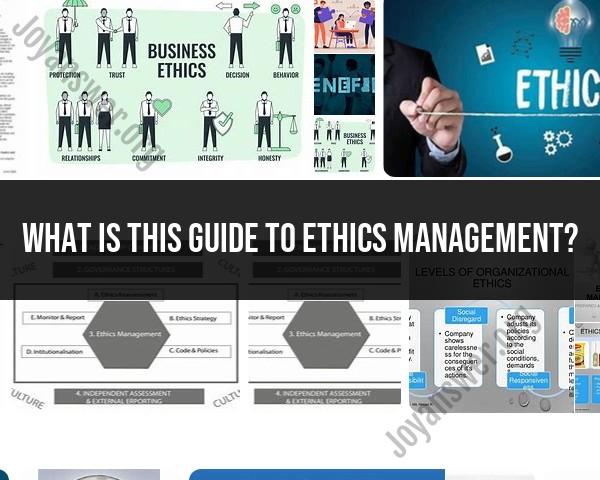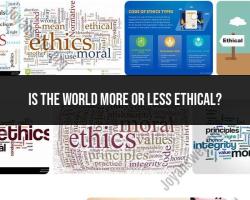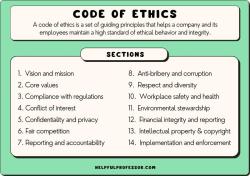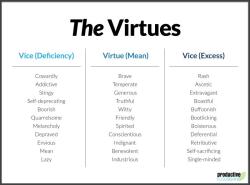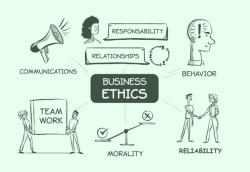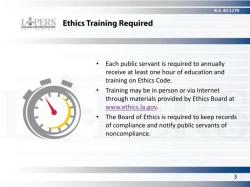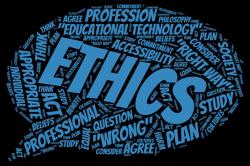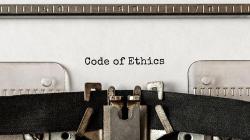What is this guide to ethics management?
A guide to ethics management typically refers to a set of principles, processes, and practices designed to help organizations promote ethical behavior, integrity, and responsible conduct within their operations. The purpose of an ethics management guide is to provide a framework for addressing ethical issues, making ethical decisions, and fostering a culture of ethics and compliance within an organization.
Here are key components that may be included in a guide to ethics management:
Code of Ethics:
- Development and communication of a clear and comprehensive code of ethics that outlines the organization's values, expectations, and standards of conduct.
Ethics Training:
- Implementation of ethics training programs to educate employees at all levels about the organization's ethical principles and policies.
Ethics Committees:
- Establishment of ethics committees or similar structures to oversee ethical matters, provide guidance, and handle ethical dilemmas within the organization.
Whistleblower Protection:
- Implementation of mechanisms to protect employees who report ethical concerns or violations. This includes establishing confidential reporting channels and ensuring non-retaliation policies.
Ethical Decision-Making Framework:
- Development of a framework or decision-making model to guide employees when faced with ethical dilemmas. This may involve considering the consequences, legal implications, and adherence to the organization's code of ethics.
Risk Assessment:
- Regular assessment of ethical risks within the organization, including identifying areas where ethical lapses may occur, and implementing measures to mitigate these risks.
Ethics Audits:
- Conducting periodic ethics audits to evaluate the effectiveness of the organization's ethics management program and identify areas for improvement.
Communication and Reporting:
- Establishing clear channels for communication regarding ethics policies and updates. This may include regular communication from leadership and the availability of resources that employees can consult.
Integration with Corporate Governance:
- Integration of ethics management into overall corporate governance practices, ensuring alignment with organizational goals and strategies.
Continuous Improvement:
- Commitment to continuous improvement in ethics management practices. This involves regularly reviewing and updating policies and procedures to address evolving ethical challenges.
Incentives and Recognition:
- Recognition and rewards for employees who demonstrate exemplary ethical behavior, fostering a positive ethical culture.
Legal Compliance:
- Ensuring that the organization's ethical practices are in compliance with relevant laws and regulations.
Stakeholder Engagement:
- Engaging with various stakeholders, including customers, suppliers, and the community, to understand and address ethical concerns that may arise in the broader context.
Leadership Commitment:
- Demonstrating commitment to ethics from top leadership, setting an example for employees and fostering a culture where ethical behavior is valued.
The guide to ethics management is not a one-size-fits-all document and should be customized based on the specific needs and characteristics of the organization. It is an integral part of corporate governance and contributes to building a strong, ethical organizational culture.
What does the guide to ethics management entail and who is it intended for?
The specific content and audience of a "guide to ethics management" can vary greatly depending on the context and purpose. However, here are some common elements you might find in such a guide:
Content:
- Principles and Frameworks: Exploring core ethical principles like utilitarianism, deontology, and virtue ethics, and how they apply to organizational decision-making.
- Ethical Dilemmas and Challenges: Identifying common ethical concerns faced in various business sectors, from employee relations to marketing practices.
- Decision-Making Tools and Processes: Providing frameworks and tools for analyzing ethical dilemmas, considering stakeholder perspectives, and making informed decisions.
- Codes of Conduct: Outlining relevant professional codes of conduct and organizational ethics policies for employees and leadership.
- Compliance and Reporting: Addressing legal and regulatory requirements related to ethical conduct, and establishing whistleblowing channels for reporting concerns.
- Building an Ethical Culture: Strategies for fostering a culture of integrity, transparency, and accountability within an organization.
- Case Studies and Examples: Real-world examples of ethical challenges faced by companies and how they were navigated, offering practical learning opportunities.
Target Audience:
- Business Leaders and Managers: Providing guidance for integrating ethical considerations into leadership decisions, risk management, and corporate governance.
- Employees at All Levels: Equipping individuals with the knowledge and skills to identify and address ethical concerns in their daily work.
- Human Resources Professionals: Supporting HR in developing and implementing ethics programs, including training, reporting mechanisms, and compliance procedures.
- Students and Future Professionals: Building awareness of ethical considerations in business and preparing them for navigating ethical dilemmas in their careers.
It's important to note that the specific content and focus of a "guide to ethics management" can be tailored to any industry, organization size, or specific need. Some guides might focus on a particular ethical issue like sustainability or data privacy, while others might be more general-purpose resources applicable to various contexts.
If you're interested in learning more about a specific guide to ethics management, I recommend checking the title, author, publication date, and any promotional materials to understand its intended audience and focus area.
I hope this information helps!
